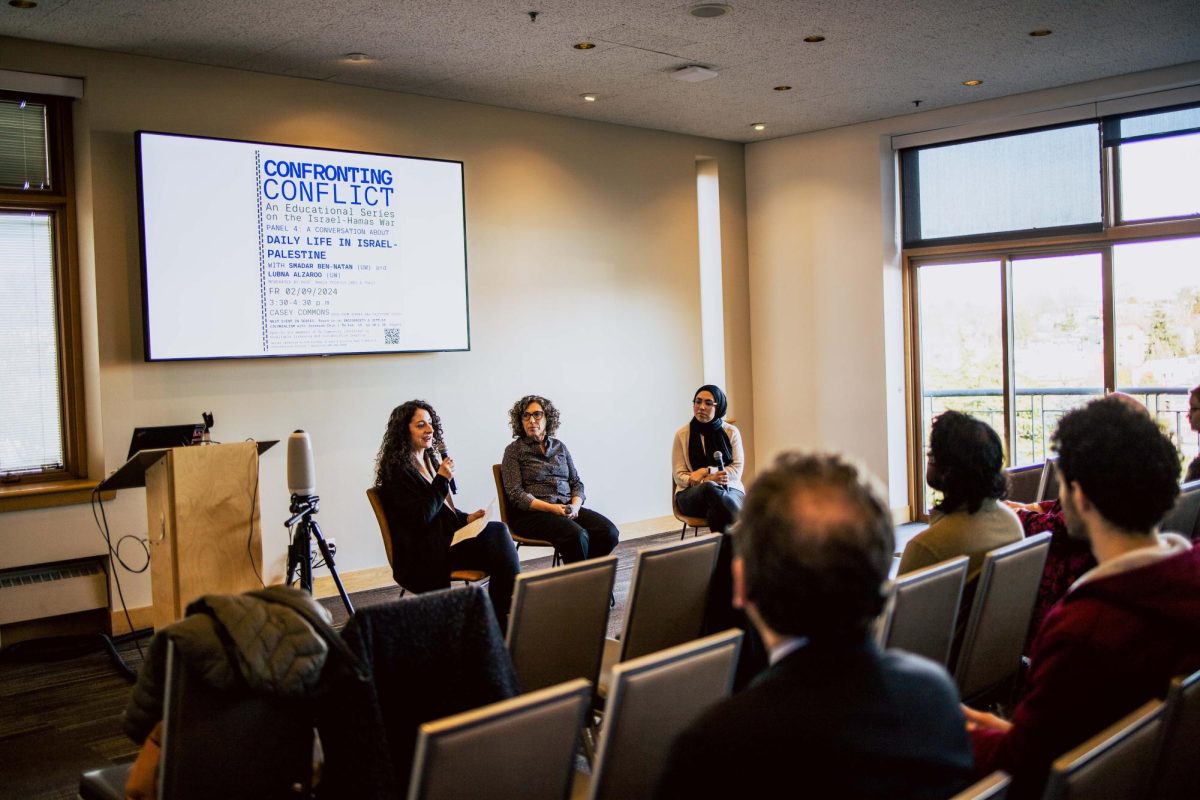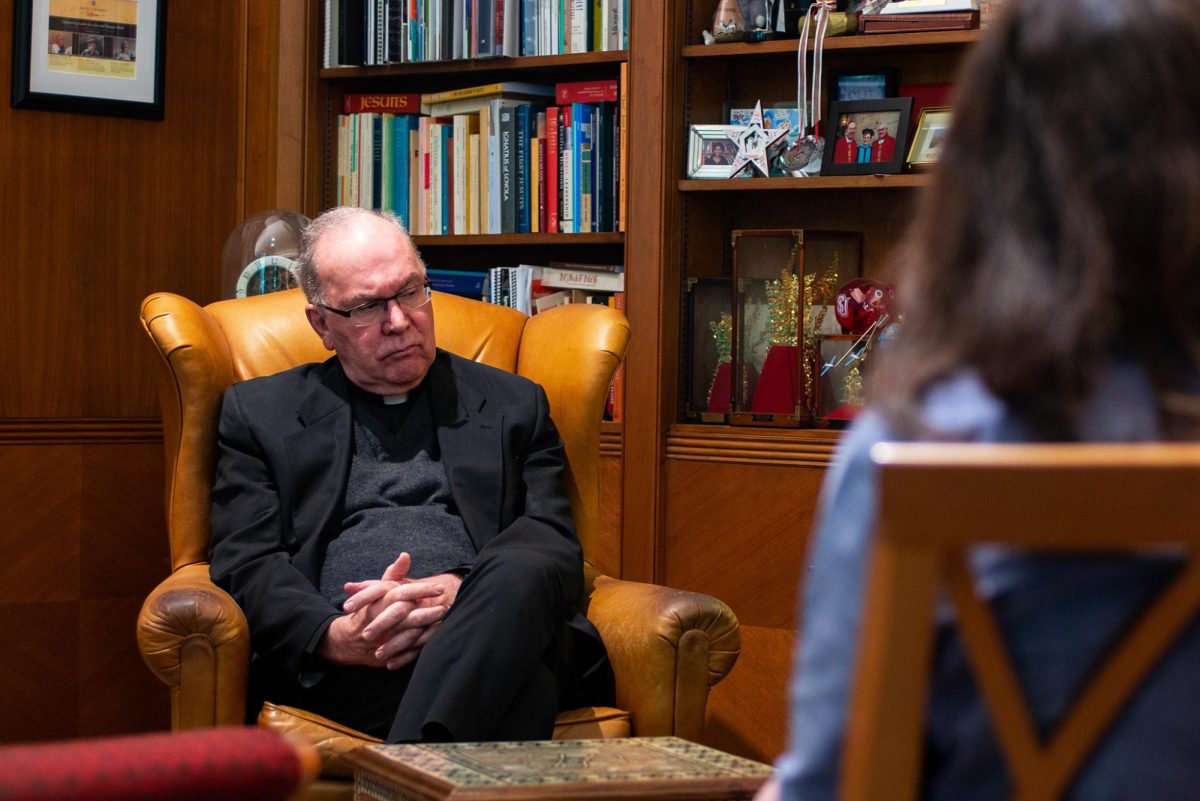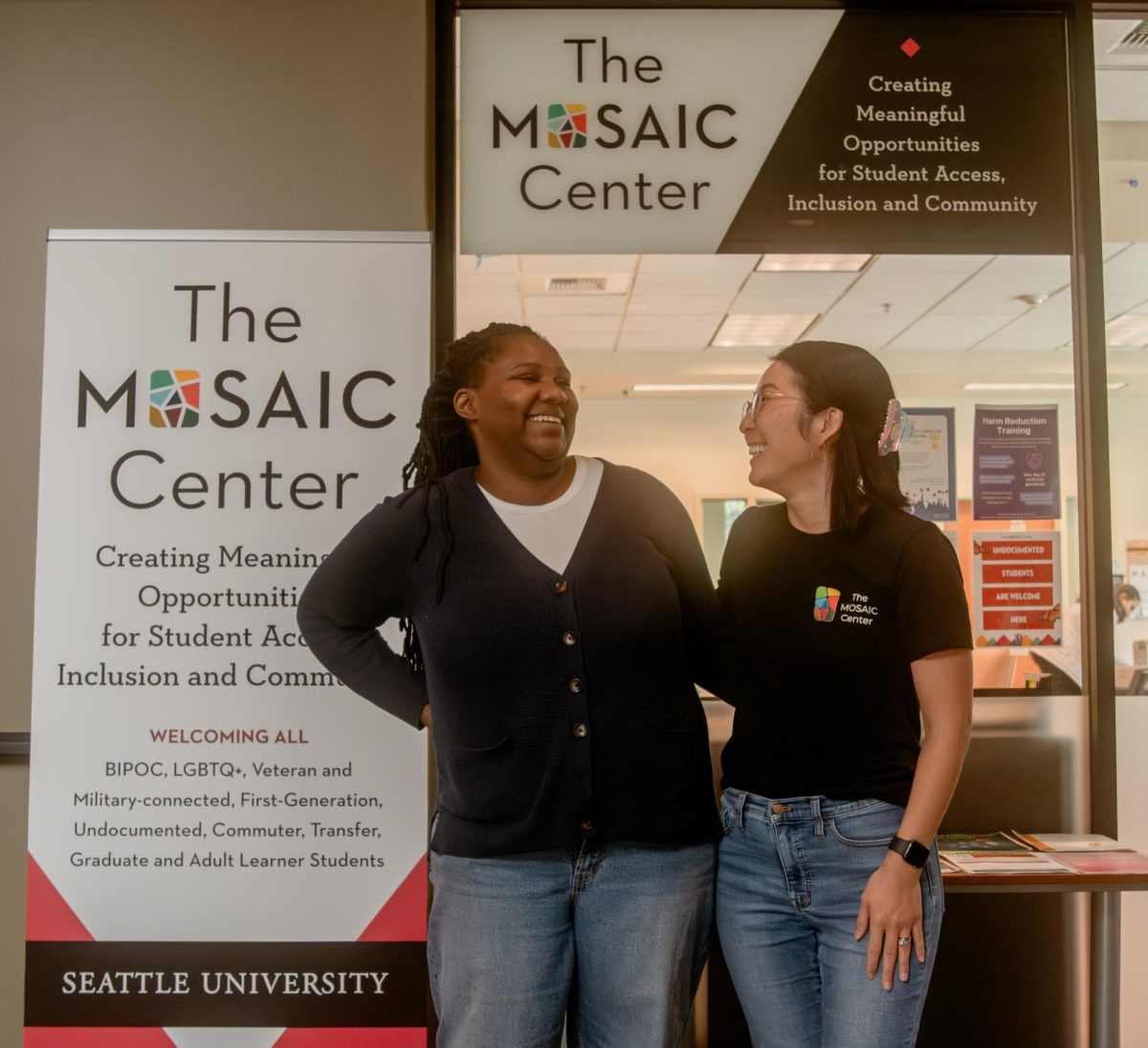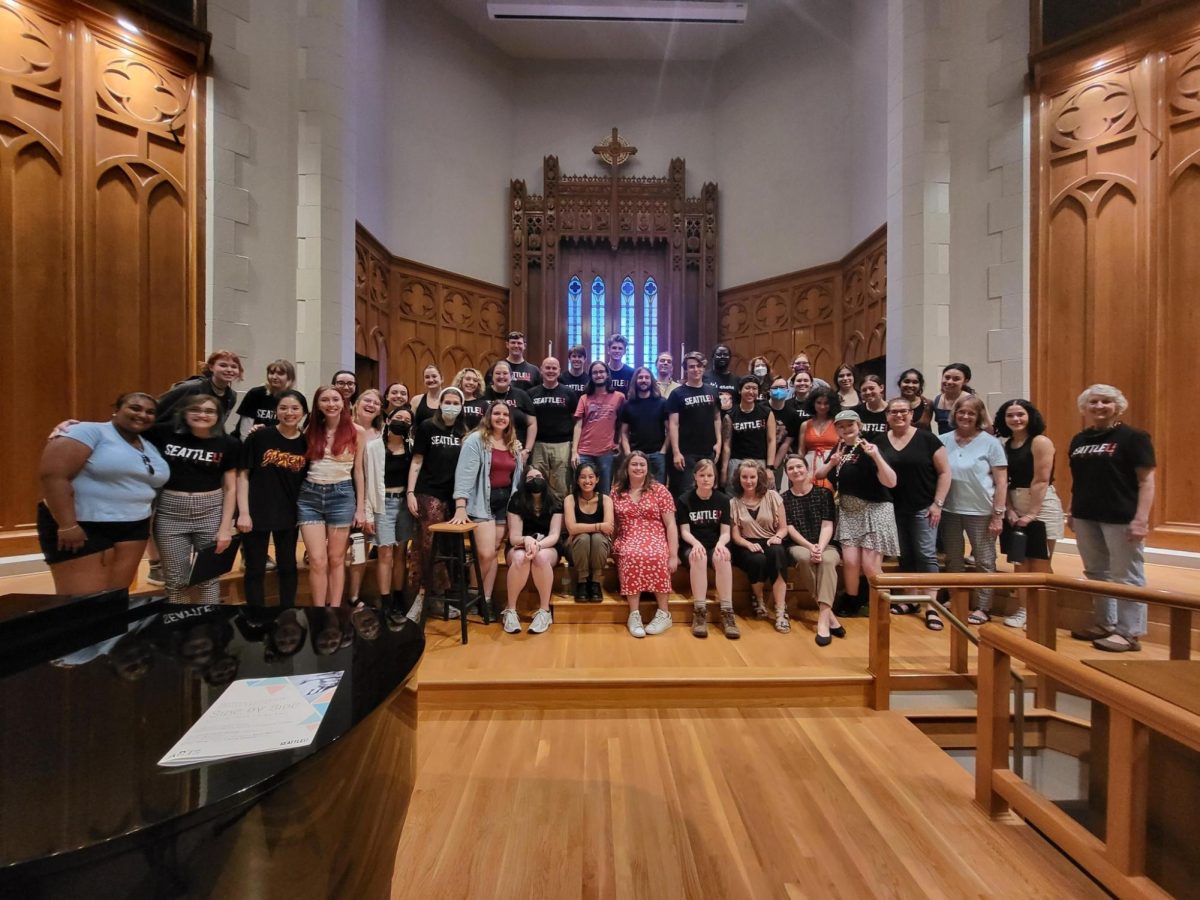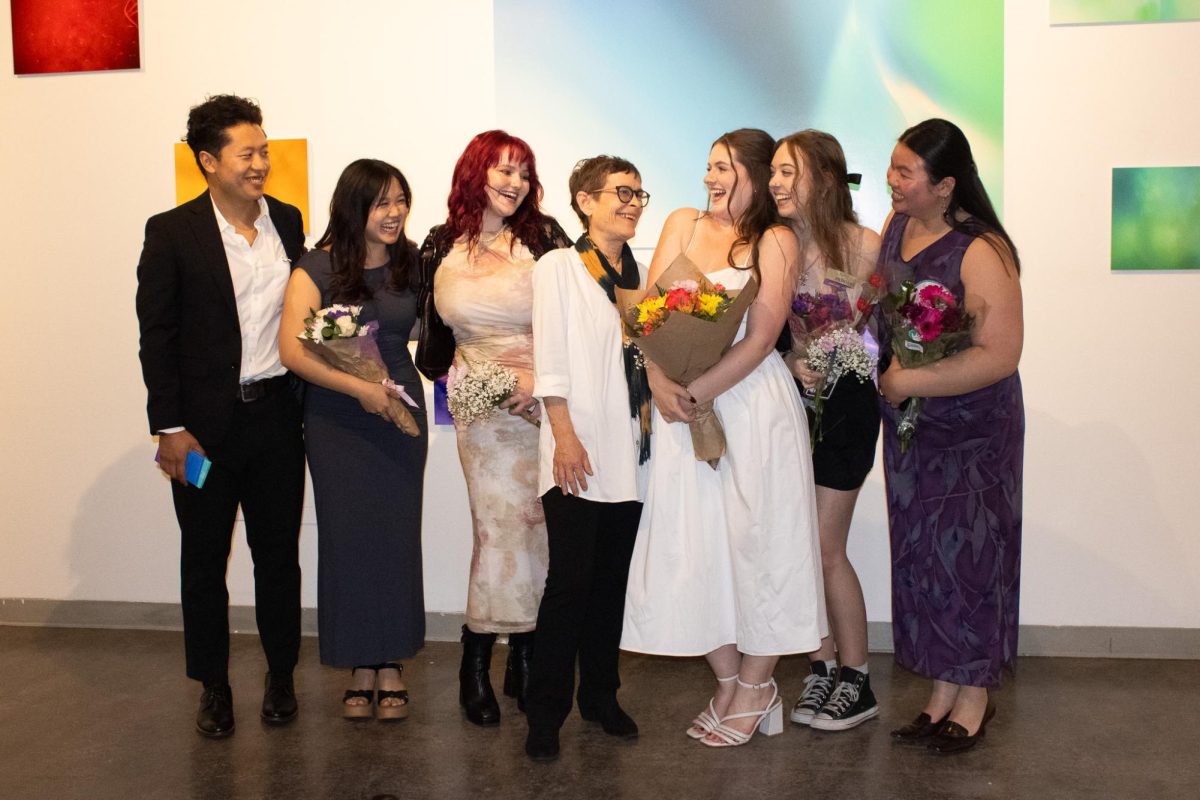To facilitate a supportive environment where students and faculty alike can learn more about what the Associated Press has titled the “Israel-Hamas War,” the College of Arts & Science Deans’ Office has organized teach-ins this winter quarter that is part of a series they have called “Confronting Conflict: An Educational Series on the Israel-Hamas War.” The series has explored the history between Israel and Palestine since 1948, antisemitism, as well as religious history and extremism.
The latest event was held Feb. 9 and included two guest speakers, Lubna Alzaroo and Smadar Ben-Natan. They led a panel that was called “Daily Life in Israel and Occupied Palestine Before October 7.”
Alzaroo is an English professor at the University of Washington (UW) whose teaching is focused on environmental humanities. Raised in Hebron, Palestine, her early life in Palestine sparked her interest in environmental justice issues and has significantly informed her career. Her research focuses on settler-colonial infrastructure, necropower, the environment in the U.S. and Palestinian literature.
Ben-Natan, a professor specializing in international law at UW with a focus on the intersection of criminal justice, national security and human rights, was the second speaker at the event. Having lived in Israel, Ben-Natan shared the experiences she and her family had living there before coming to the U.S., while sharing her perspective on the conflict from that of an Israeli human rights lawyer.
In dialogue with one another, Alzaroo and Ben-Natan highlighted historical elements of the relationship between Israel and Palestine as well as the challenges being navigated in the midst of the Israel-Hamas War. Alzaroo commented on the importance of facilitating spaces to have such conversations.
“In educational settings, you don’t see as many universities investing their budgets to create extracurricular events that deal with Palestine. It only happens when the mainstream media is talking about it… every day, there is violence in Palestine. It’s not just one event,” Alzaroo said.
To provide context on a fraction of the tension between Israel and Palestine, Ben-Natan discussed the Oslo Accords. It was a peace treaty signed in 1993 between Israeli Prime Minister Yitzhak Rabin and Palestine Liberation Organization Negotiator Mahmoud Abbas. When the peace treaty fell in 2000, it caused significant division between Palestinians and Israelis. Shortly after, the Israeli government began using extreme precautions against the occupied Palestinian territories, such as building the wall between Israel and the occupied West Bank as well as strengthening its checkpoints.
Ben-Natan spoke about how this disruption caused many Palestinians who used to work in Israel to lose their jobs. Being from Israel, Ben-Natan has observed first-hand what the relationship between Israel and Palestine looks like.
“I am from there, and I know very well and intimately the situations on the ground and the history. I care deeply about it. We care about where we come from and where the places and the people we love are,” Ben-Natan said.
One of the issues discussed by Alzaroo was the current living conditions of Palestinians in Gaza. According to Alzaroo, Palestinians have to buy water from the Israelis, who control most, if not all, of the water sources throughout the West Bank and Gaza.
In addition to limited access to water, Alzaroo also highlighted how the border between Israel and Gaza is controlled under stringent conditions. No Palestinian is allowed to leave Gaza without Israeli permission, and resources necessary for survival have been prevented from crossing the borders into Gaza, including aid trucks from Egypt that carry fuel to power hospital generators, ambulances and water pumps.
The two-state or one-state solution was also talked about during the teach-in. According to an article from Vox, if they lean to one state and merge Israel, the West Bank and the Gaza Strip, then Arab-Muslims would outnumber Israeli Jews, potentially ending the Jewish state. Or, it would entail Israel annexing the West Bank, potentially leading to the expulsion of Palestinians or the denial of their voting rights. Many reject that the latter is a reasonable option though.
Ben-Natan talked about the reparations in the Western media on the topic of the two-state solution and how it’s presented.
“I think the discussion is very off. I think the two-state solution is not a viable solution anymore and not a desirable solution, but there seems to be no consideration of other types of solutions,” Ben-Natan said.
She added that she wishes for more alternatives to be proposed in the future. With the level of trauma and violence being inflicted, Ben-Natan believes that the resolution should be with care.
Onur Bakiner, an associate professor of political science at Seattle University, explained a bit about Western repression in the conflict and its influence.
“Understanding the everyday dynamics of conflict is important in another way: ordinary people’s ideas about political conflict may influence armed actors’ ability and willingness to use violence – sometimes legitimizing such violence and sometimes questioning it,” Bakiner wrote to The Spectator.
While conversations about the Israel-Hamas War can vary among people, Ben-Natan and Alzaroo helped to add more depth by sharing their knowledge and assisting others in developing a more nuanced understanding of the topic. If one is interested in learning more, the “Confronting Conflict” series will be holding another panel titled “Transitional Justice” Feb. 29 with law school professor Jeremiah Chin.






